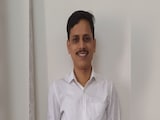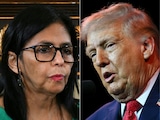I was 7 when I was first raped, 7 when my body was felt up and painfully penetrated. I still get shivers down my spine when I get into the mind of the little child that I was. I was too young to realise what was happening. My first encounter with sex was a game of power and almost manslaughter. As I grew up, the abuse intensified. As many survivors do, I resigned to the forces that were silencing and challenging me. For 11 years, I did not learn to say no. But when I did, justice seemed elusive. At the time, there was no law that protected children from sexual crimes.
Today is the World Day for Prevention of Abuse and Violence against Children, and it provides us with the opportunity to reflect on the quality of life we are providing India's 400 million children. Child Sexual Abuse, a severe form of violence that damages the psyche of a child, is taking epidemic proportions in India. Studies in fact show that India is home to the highest number of sexually abused children in the world.
A decade and a half later, I find myself as an active voice for the cause. I have participated in consultation groups that drafted legislation, signed petitions demanding a strong law against child sexual abuse, and even told my story to Aamir Khan in the TV Show Satyamev Jayate. My life seemed to have come around full circle when, a few months after the telecast of the show, the Protection of Children from Sexual Offences Act, 2012 (POCSO) was introduced.
The POCSO Act is a comprehensive, child-friendly and gender-neutral legislation that prescribes in great detail the procedures that authorities need to adhere to while dealing with cases of child sexual abuse. I had lost my childhood - but the knowledge that the POCSO Act would ensure that children could access justice, and more importantly, a process that would afford them the potential for emotional closure, made the effort seem worthwhile. Yet, the POCSO Act is found wanting in implementation.
The case of a Bangalore-based French diplomat currently being tried for sexually abusing his daughter tells us much about the extent to which POCSO has put in place child friendly procedures. The child's mother, Suja Jones, filed a complaint against her now former husband for sexually abusing their daughter. She described her ordeal in dealing with the local police in a poignant letter that she wrote to several women's rights groups at the 57th session of the UN Commission on the Status of Women. "...The next day the police insisted that my child go through yet another medical examination at a filthy government hospital labour ward with blood on the walls and women in labour around her. She was subjected to the 'two finger test'. My daughter, who was barely 3 years 9 months, screamed during the ordeal."
Why would a three and a half year old be tested for virginity and hymen intactness? Are we not subjecting the child to a repeat instance of assault, simply to prove that she has been sexually abused?
Ms Jones then goes on to describe the reprehensible conduct of the Investigative Officer in her letter - "The Investigative Officer then proceeded to touch my daughter on different parts of her body and ask her, 'Did your father touch you here? Did your father touch you there?'' The officer then stated that the "child loves her father and misses him" and included this comment in the charge-sheet.
Ms Jones' experience underscores the lack of sensitivity and unpreparedness of institutional machinery to respond effectively to these cases, and makes the case for a stronger political commitment to make sure this happens.
Around 53% of children in India are subjected to some sort of sexual abuse. This means that, every second child is a survivor of this ghastly crime. 6,816 convictions were made under the POCSO Act between November 2012 and March 2015. This means that only about eight cases of child sexual abuse are reported daily. Of the accused, only 166 convictions have been made, whereas 389 accused have been acquitted. Every two hours, a child under 16 years is raped in India. A child under 10 years is raped every 13th hour. Abuse is not gender specific - boys are as susceptible to abuse as girls. However, there are fewer cases of male child sexual abuse that get reported.
For the leadership to send the signal that they are committed to a robust, institutional, non incident-specific response to child sexual abuse, they must ensure that the issue features at the very top of their political and governance agenda. A great initiative started very recently by Rajya Sabha MP Rajeev Chandrasekhar is a Change.org petition requesting the Prime Minister to commit to a roadmap to end child sexual abuse. Chandrasekhar has, over the last year, asked the Parliament over 30 incisive questions on Child Protection, to which he received very lacklustre responses
Rajeev's petition deserves the support of activists such as myself, legal professionals, the media and as many responsible citizens as possible. The safety of India's 400 million children, after all, is our collective responsibility.
(Harish Iyer is an equal rights activist in Mumbai. He is the only Indian national to feature in The Guardian's list of 100 most influential LGBT people in the world.)
Disclaimer: The opinions expressed within this article are the personal opinions of the author. The facts and opinions appearing in the article do not reflect the views of NDTV and NDTV does not assume any responsibility or liability for the same.
This Article is From Nov 18, 2015
Opinion: I Was Just 7 When I Was Raped - by Harish Iyer
Advertisement
Harish Iyer
- Opinion,
-
Updated:Jun 17, 2021 10:37 am IST
Topics mentioned in this article















